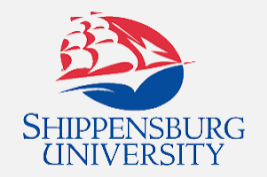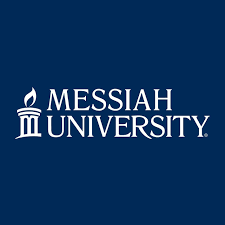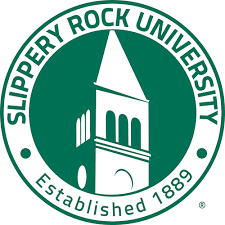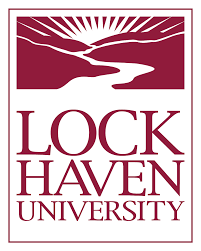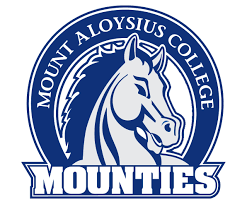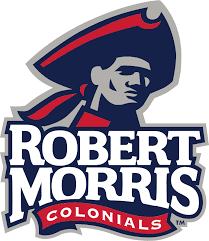Welcome to College Prep


Jezzelle Repalbor
College AdvisorAvailable Monday, Wednesday, and Fridays.
College Choices
More College Options!
- STATE-OWNED
- Commonwealth University
- Bloomsburg Campus
- Lock Haven Campus
- Mansfield Campus
- Cheyney Univ. of PA
- East Stroudsburg Univ. of PA
- Indiana Univ. of PA
- Kutztown Univ. of PA
- Millersville Univ. of PA
- Pennsylvania Western Univ.
- California Campus
- Clarion Campus
- Edinboro Campus
- Shippensburg Univ. of PA
- Slippery Rock Univ. of PA
- West Chester Univ. of PA
- STATE-RELATED
- Lincoln University
- Temple University
- Univ. of Pittsburgh (Bradford, Greensburg, Johnstown, Pittsburgh, Titusville)
- Penn State University
- (Abington, Altoona, Beaver, Berks, Brandywine, DuBois, Erie, Fayette, Greater Allegheny, Harrisburg, Hazleton, Lehigh Valley, Mont Alto, New Kensington, Schuylkill, Shenango, University Park, Wilkes-Barre, Worthington-Scranton, York)
- Penn College of Technology
- Commonwealth University
- COMMUNITY COLLEGES
- CC of Allegheny County
- CC of Beaver County
- Bucks County CC
- Butler County CC
- Delaware County CC
- Harrisburg Area CC
- Lehigh Carbon CC
- Luzerne County CC
- Montgomery County CC
- Northampton County Area CC
- Pennsylvania Highlands CC
- CC of Philadelphia
- Reading Area CC
- Westmoreland County CC
- OTHER TWO-YEAR
- Harcum College
- Johnson College
- Lackawanna College
- Lancaster General Col. of Nursing/Health Sci.
- Lehigh Valley College
- Manor College
- McCann School of Bus/Tech
- New Castle School of Trades
- Pennsylvania Culinary Institute
- Pitt. Inst. Mortuary Science
- Penn. Institute of Technology
- South Hills School of Business/Tech
- Thaddeus Stevens Col. of Tech
- Triangle Tech
- Valley Forge Mil. Acad/Col.
- PRIVATE FOUR-YEAR
- Albright College
- Allegheny College
- Alvernia University
- The American College
- Arcadia University
- Art Institute of Pittsburgh
- Baptist Bible Col. & Seminary
- Bryn Athyn College
- Bryn Mawr College
- Bucknell University
- Cabrini College
- Carlow University
- Carnegie Mellon University
- Cedar Crest College
- Central Pennsylvania College
- Chatham University
- Chestnut Hill College
- Curtis Institute of Music
- Delaware Valley College
- DeSales University
- Dickinson College
- Drexel University
- Duquesne University
- Eastern University
- Elizabethtown College
- Franklin & Marshall College
- Gannon University
- Geneva College
- Gettysburg College
- Gratz College
- Grove City College
- Gwynedd-Mercy College
- Harrisburg Univ of Sci/Techn.
- Haverford College
- Holy Family University
- Hussian School of Art
- Immaculata University
- Juniata College
- Private Four Year Continued
- Keystone College
- King’s College
- Lafayette College
- La Roche College
- Lancaster Bible College
- LaSalle University
- Lebanon Valley College
- Lehigh University
- Lycoming College
- Marywood University
- Mercyhurst College
- Messiah College
- Misericordia University
- Moore Col. of Art and Design
- Moravian College
- Mount Aloysius College
- Muhlenberg College Neumann University
- Peirce College
- Penn Col. of Art and Design
- Philadelphia Biblical Univ.
- Philadelphia University
- Point Park University
- Robert Morris University
- Rosemont College
- Saint Francis University
- Saint Joseph’s University
- Saint Vincent College
- Seton Hill University
- Susquehanna University
- Swarthmore College
- Thiel College
- Thomas Jefferson University
- University of Pennsylvania
- University of Scranton
- University of the Arts
- Ursinus College
- Valley Forge Christian College
- Villanova University
- Washington & Jefferson Col.
- Waynesburg University
- Westminster College
- Widener University
- Wilkes University
- Wilson College
- York College of PA
Applying to Your Choices

- finalize your college choices
- Prepare Early Decision, Early Action or rolling admission applications as soon as possible. Note: Early Decision is binding, you have to attend when accepted.
- Ask for counselor or teacher recommendations if you need them.
- If you’re submitting essays, write first drafts and ask teachers and others to read them. Proofread your essays and have someone read it to you to check for mistakes
- Check if the schools you are applying to are test-optional, and how to submit your test scores if they are needed..
- Counselors send transcripts to colleges. Give counselors the proper forms at least two weeks
- As you finish and send your applications and essays, be sure to keep copies.
- Submit your FAFSA as soon as possible
Academic
- Transcript – includes your GPA, class rank and all the courses you have taken 9 – 12. Colleges want to see that you have challenged yourself; for example, they would rather you get a B in AP Chemistry than an A in Senior Earth Science.
- School Profile – includes statistics like our SAT school average, the percentage of students going onto college, courses available to students, grading scale, etc. This information gives colleges a baseline of which to compare you against.
- Test Scores – each school has its own standards when it comes to the scores they are looking for. Rarely are there hard-fast minimum test scores; look for a college’s average scores to gauge how your own scores compare.
- Note – there are many schools that have opted to go test-optional in their admissions process. However, more competitive programs may require test scores. Merit scholarships may also consider one’s test scores. If you have any questions about whether you need test scores, ask the admissions counselors!
- Recommendations – these give teachers, advisors, counselors, and even coaches the opportunity to brag about you to admissions officers. Be thoughtful about who you ask to write you a letter of recommendation – chose people who have seen you at your very best academically and personally.
Personal
- Interview – the interview gives you a chance to really show your personality. Admissions representatives want to put a face and a personality to the admissions materials you sent in.
- Experiences – Colleges want to know what you are doing outside of school too! Tell them about your after-school job, your community service experiences, and even your participation in sports, clubs and church life. These experiences will show colleges the kinds of things you could contribute to their campus community.
- Early Decision (ED)
- The student commits to attending the school if admitted
- Binding agreement, you MUST attend that college if admitted!
- Application deadlines are typically in early to mid-November and students will hear a decision in early to mid-December
- If admitted, the student must cancel or withdraw all other applications
- It is possible to back out without penalty, but only with a good reason!
- If you apply to two schools ED, your acceptances at both schools may be rescinded.
- EDII – all the same rules apply except deadlines are in December or January and students receive notification in February
- Early Action (EA)
- Application deadlines are typically in early November
- Students will hear a decision by mid-December
- Not binding! – Students can decline their acceptance
- Students are able to apply to more than one school under the EA deadline
- If accepted, students do not need to make a decision until May 1
- Rolling Admissions
- Large window of time for students to apply
- Applicants are often notified of their acceptance within a few weeks of applying
- College accepts students as long as spaces are available
- Applying early improves an applicant’s chance of being accepted
- Applying early can increase the chance of receiving scholarships and may give an applicant first choice for housing
- Open Admissions
- Students are admitted without regard to conventional academic qualifications
- Often exempt from taking appropriate high school courses and standardized tests
- Most common at community colleges though some programs at these schools may have stricter requirements
Financial Aid
Guidelines:
- FAFSA – Free Application for Federal Student Aid is required for anyone applying for financial aid. The site becomes live on October 1st of each year and you should aim to fill out the form as soon after that date as possible. On this form, you will indicate schools you want to receive your financial information.
- CSS Profile – required by 19 colleges in PA and 248 colleges and scholarship organizations across the U.S. You may start filling out this form in the fall of the senior year. On this form, you will indicate schools you want to receive your financial information.
- Some schools also require you to fill out their own institutional financial aid form which is often found in their application materials or may come to you in the mail or by email after you have submitted your application.
- Consider applying to one of the Pennsylvania state schools (ex. Shippensburg, IUP, Slippery Rock) as a “financial aid safety”.
- It is perfectly acceptable to call the Financial Aid Office after you receive your award letter to ask questions, get clarification, or update any financial information that may have changed.



